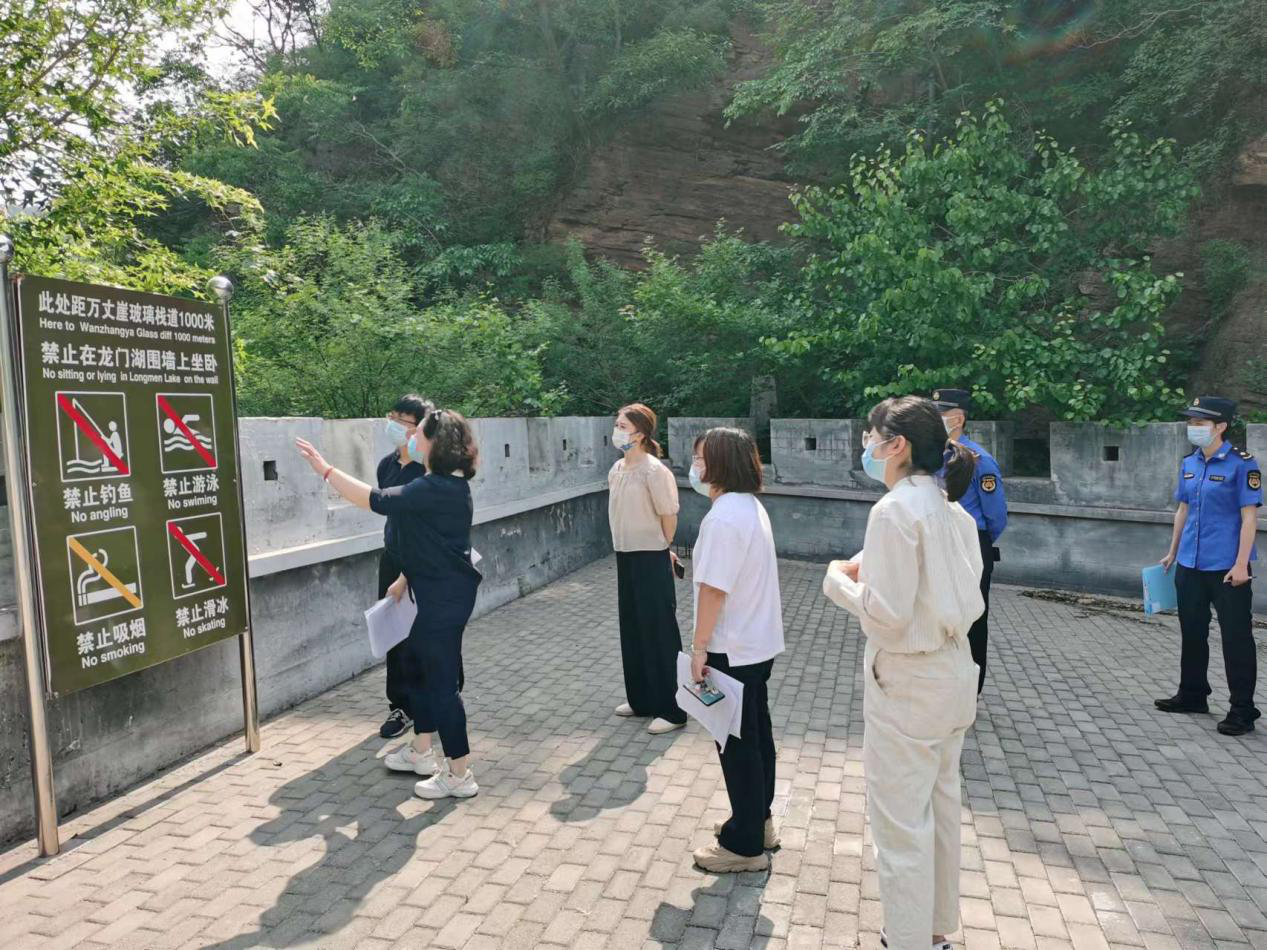Editor's note: On January 1, 2022, the Regulations of Beijing Municipality on Improving Language Environment for International Exchanges came into force, providing a reliable reference for the city to foster an enabling language environment for international exchanges in accordance with the law. All districts and supervisory authorities of relevant industries in Beijing have followed the requirements of the regulations and promoted its implementation in a well-panned manner, achieving positive outcomes.
To celebrate the 20th National Congress of the Communist Party of China, Beijing Foreign Affairs Office has launched a special feature on its WeChat official account, Implementing the Regulations of Beijing Municipality on Improving Language Environment for International Exchanges. The special feature focuses on the city's progress and achievements in improving its language environment to strengthen its role as the national center for international exchanges.

Pinggu District has taken multiple measures to implement the Regulations of Beijing Municipality on Improving Language Environment for International Exchanges. Such efforts have improved its language environment for international exchanges, thus contributing to Beijing's endeavor to strengthen its role as the national center for international exchanges by enhancing the capacity of key areas.
Refine Mechanisms and Improve Performance Appraisals
Examine every new sign. Pinggu has introduced a principle stipulating that those who put up new signs are responsible for the foreign language content on the signs. A total of 14 industry supervisory bodies and 18 towns or sub-districts are required to examine their new foreign language signs. As a result, the district has seen higher quality and efficiency in the management of signs.
Manage signs on an ongoing basis. Under the supervision and guidance of Pinggu Foreign Affairs Office, five major foreign language sign providers have updated the content of 1163 signs and rectified 107 signs in a phased manner.
Strengthen supervision and appraisal. The district has made the improvement of the international language environment part of its annual performance appraisal system and formulated plans for the work. It has laid out eight annual tasks, with the progress supervised on a monthly basis and support provided for each task. It has coordinated all departments to jointly build a better international language environment.
Take the Initiative to Optimize Services
Improve foreign language services. The district releases information on epidemic prevention and control in foreign languages. It also provides foreign language services to assist foreigners in nucleic acid tests, vaccination and matters concerning their children's education. In this way, the government has helped to solve their problems 16 times, making them more satisfied with public services.
Make foreign language services accessible at public service facilities. The district bureau of government services, community health service centers, and other public service providers have added 304 foreign language signs, set up 21 foreign language service windows, and been equipped with five smart translation devices to further upgrade public services.
Conduct coordinated law enforcement. Pinggu foreign affairs office has joined hands with industry supervisory bodies and Pinggu law enforcement bureau for urban management, visited key tourist attractions to check foreign language signs, and guided enterprises to rectify 58 signs.
Step up Communication and Training to Improve Ability
Offer special training programs. Special training in improving the international language environment was launched for industry supervisory authorities and heads of towns and sub-districts, with officials from the Beijing Foreign Affairs Office to interpret the Regulations of Beijing Municipality on Improving Language Environment for International Exchanges, which has consolidated the foundation for administration under the rule of law.
Strengthen targeted communication and guidance. The district has organized four visits to key tourist attractions to communicate the importance of the international language environment by interpreting the Regulations of Beijing Municipality on Improving Language Environment for International Exchanges. These visits have raised the local stakeholders' awareness of setting up standardized foreign language signs.
Select personnel competent in foreign languages. The government has been expanding its pool of such personnel. A total of 29 outstanding foreign language users, 52 proficient users, and 505 independent users from all departments across the district have been selected for Pinggu's foreign language service team. Training sessions will be organized for members of the service team to enhance their capacity.


